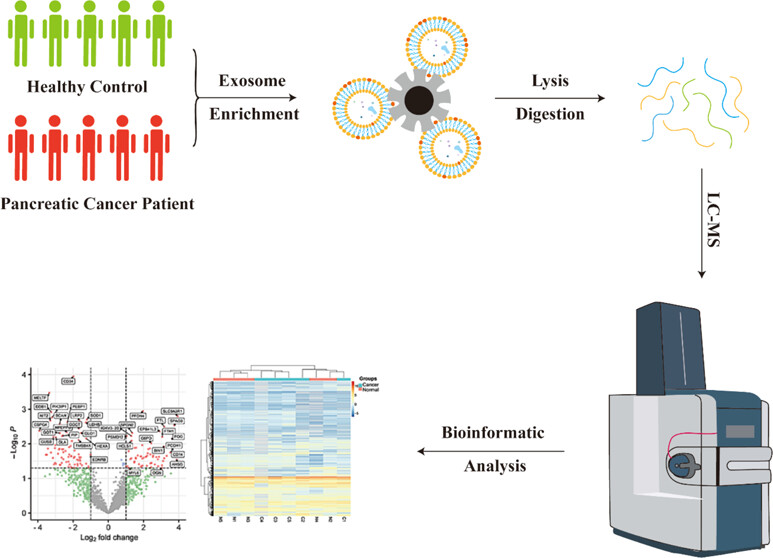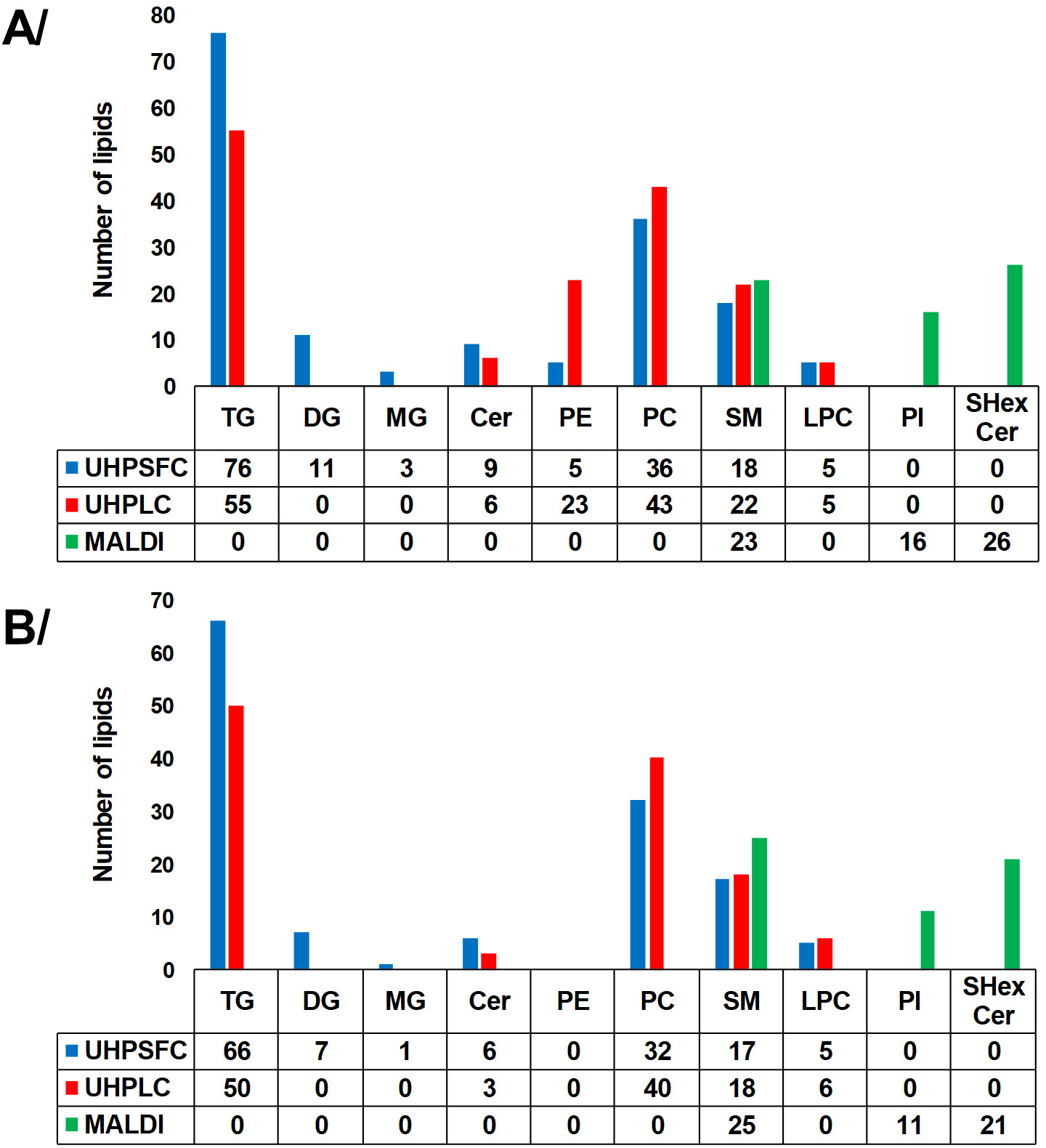Mass Spectrometry based Exosome Characterization Service
Mass spectrometry-based exosome characterization is an advanced service that utilizes high-resolution mass spectrometry (MS) to systematically and quantitatively analyze the molecular components within exosomes. By precisely measuring molecular masses and integrating with platforms such as chromatography, MS can comprehensively identify and quantify proteins, lipids, metabolites, and other molecules in exosomes, uncovering their molecular basis in processes like intercellular communication, disease progression, and drug delivery.
Mass spectrometry-based exosome characterization service is widely applied in fields such as cancer, metabolic diseases, neurodegenerative disorders, and cardiovascular diseases. It assists researchers in identifying disease-related biomarkers within exosomes and elucidating their roles in pathological processes. Additionally, this service can be used to assess the quality and functionality of exosomes as drug delivery vehicles, making it an indispensable tool in exosome-based basic research, clinical diagnostics, and therapeutic development.
Services at MtoZ Biolabs
Based on high-resolution chromatography-mass spectrometry systems, MtoZ Biolabs offers mass spectrometry-based exosome characterization service for comprehensive and precise qualitative and quantitative analysis of proteins, lipids, and metabolites within exosomes. By integrating advanced Orbitrap or Q-TOF mass spectrometers, this service ensures high sensitivity and high-resolution data acquisition, uncovering the molecular species, abundance, and differential changes in exosomes. Ultimately, clients receive detailed molecular profiling, abundance analysis, functional annotation, and related biological pathway information, supporting research in disease mechanisms, biomarker discovery, and drug development.
Analysis Workflow
1. Exosome Isolation and Purification
Exosomes are efficiently isolated and purified from various samples, including blood, urine, and cell culture supernatants, using methods such as ultracentrifugation, density gradient centrifugation, membrane filtration, or immunoaffinity capture. These processes ensure that exosome samples possess high purity and integrity, making them suitable for subsequent mass spectrometry analysis.
2. Sample Preparation
Exosome samples undergo extraction, enzymatic digestion, and purification of proteins, lipids, or metabolites to remove impurities and optimize sample quality. This step guarantees that metabolites, proteins, and other molecular components can be accurately detected by mass spectrometry.
3. High-Resolution Mass Spectrometry Analysis
Using advanced chromatography-tandem mass spectrometry platforms, comprehensive identification and quantification of proteins, lipids, metabolites, and other molecular components within exosomes are performed. This approach generates high-quality data on molecular species, abundance, and post-translational modifications.
4. Data Analysis and Reporting
With professional bioinformatics tools, in-depth analysis of mass spectrometry data is conducted, including protein functional annotation, pathway enrichment, molecular network analysis, and potential biomarker discovery. A detailed analytical report is provided to support disease mechanism studies and biomarker identification.

Chen, X H. et al. Journal of Proteome Research, 2024.
Figure 1. Detection Process of Exosomes in Urine of Cancer Patients by Mass Spectrometry.
Service Advantages
1. High Sensitivity and High Resolution
Relying on advanced high-resolution mass spectrometry platforms (such as LC-MS/MS), this service enables accurate identification of low-abundance proteins, lipids, and metabolites within exosomes, ensuring highly accurate and comprehensive data.
2. Comprehensive Molecular Component Analysis
It provides systematic detection of various components in exosomes, including proteins, lipids, and metabolites, offering a complete profile of exosomal molecular composition and functional characteristics.
3. Quantitative and Differential Analysis
Provides accurate quantitative data of molecular components and enables comparative analysis between different samples, supporting biomarker discovery and mechanistic studies.
4. Customized Service Solutions
Offers flexible design of proteomics, lipidomics, metabolomics, or integrated multi-omics analysis based on clients' specific research goals, meeting diverse research and application needs.
Applications
1. Biomarker Discovery
By systematically analyzing proteins, lipids, and metabolites in exosomes, this service identifies biomarkers associated with cancer, neurodegenerative diseases, cardiovascular diseases, and more, supporting early diagnosis and prognosis evaluation.
2. Disease Mechanism Research
Mass spectrometry based exosome characterization service can be used to uncover the molecular mechanisms of exosomes in processes such as tumor metastasis, inflammatory responses, and immune regulation, advancing fundamental disease research.
3. Drug Delivery and Efficacy Evaluation
By analyzing the molecular components of exosomes as drug delivery carriers, this service assesses drug loading efficiency, delivery performance, and in vivo metabolic dynamics, guiding the development of novel delivery systems.
4. Exosome Quality Control
Mass spectrometry based exosome characterization service can be applied to the molecular composition analysis and quality verification of engineered exosomes and therapeutic exosome products, ensuring their stability, safety, and functionality to meet clinical translation requirements.
Case Study
1. Lipidomic Characterization of Exosomes Isolated from Human Plasma Using Various Mass Spectrometry Techniques
This study aims to systematically characterize the lipidomic profiles of human plasma-derived exosomes and evaluate the application performance of various mass spectrometry (MS) techniques in exosomal lipid analysis. The study focuses on exosomes isolated from healthy human plasma using ultracentrifugation. After isolation, multiple MS-based techniques, including liquid chromatography-mass spectrometry (LC-MS) and direct infusion mass spectrometry (DI-MS), were employed to perform lipidomic profiling and compare their detection capabilities and applicability. The results show that different MS methods can identify a variety of exosome-associated lipid molecules, such as phospholipids, sphingolipids, and glycerolipids. Among these, LC-MS demonstrated higher resolution and sensitivity in lipid separation and quantification, while DI-MS was suitable for rapid screening. The study concludes that combining multiple MS platforms allows for a comprehensive analysis of exosomal lipids, enhancing the coverage of lipid species and abundance detection. This provides strong technical support for identifying exosomal lipid biomarkers in disease diagnosis and mechanistic studies and lays the groundwork for the future standardization of exosome lipidomics analysis.

Peterka, O. et al. Biochimica et Biophysica Acta (BBA) - Molecular and Cell Biology of Lipids, 2020.
Figure 2. Number of Quantified Lipid Species in A/ Exosomes and B/ Human Plasma by UHPSFC/MS (Blue), UHPLC/MS (Red), and MALDI-MS (Green).
FAQ
Q1: How to Ensure the Accuracy and Reliability of Mass Spectrometry Analysis Data?
A1: We utilize high-resolution mass spectrometry (such as LC-MS/MS), standardized sample preparation workflows, and strict quality control strategies (including internal standards and parallel testing of QC samples) to ensure high accuracy, reproducibility, and comparability of the data. A detailed quality control report is also provided with each analysis.
Q2: What Pretreatment Is Required for Exosome Samples?
A2: Clients can provide pre-isolated and purified exosome samples, or entrust us to perform exosome isolation and purification from body fluids or cell culture supernatants. We also offer sample pretreatment services, including protein extraction, lipid or metabolite extraction, to ensure that samples are suitable for mass spectrometry analysis.
How to order?







